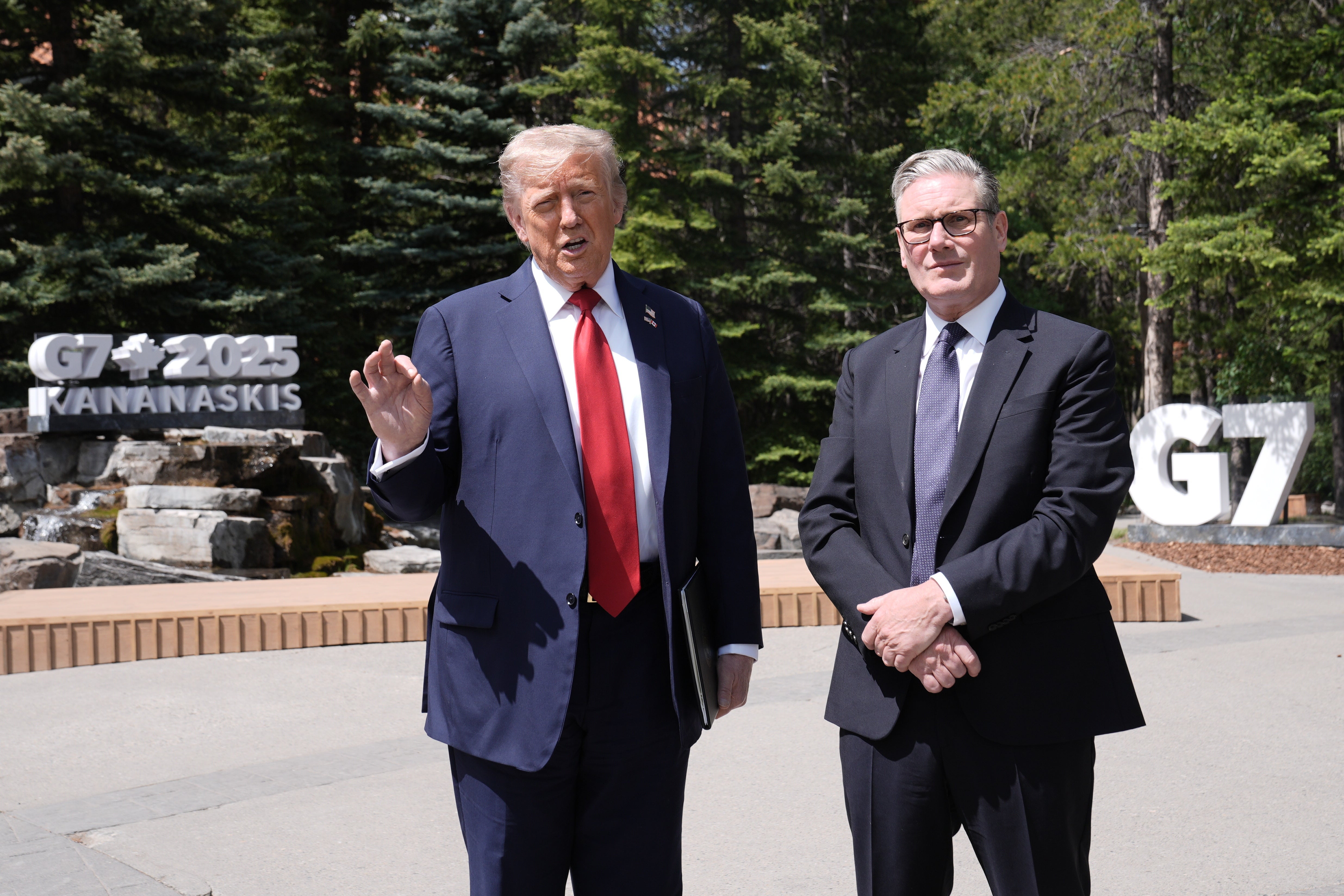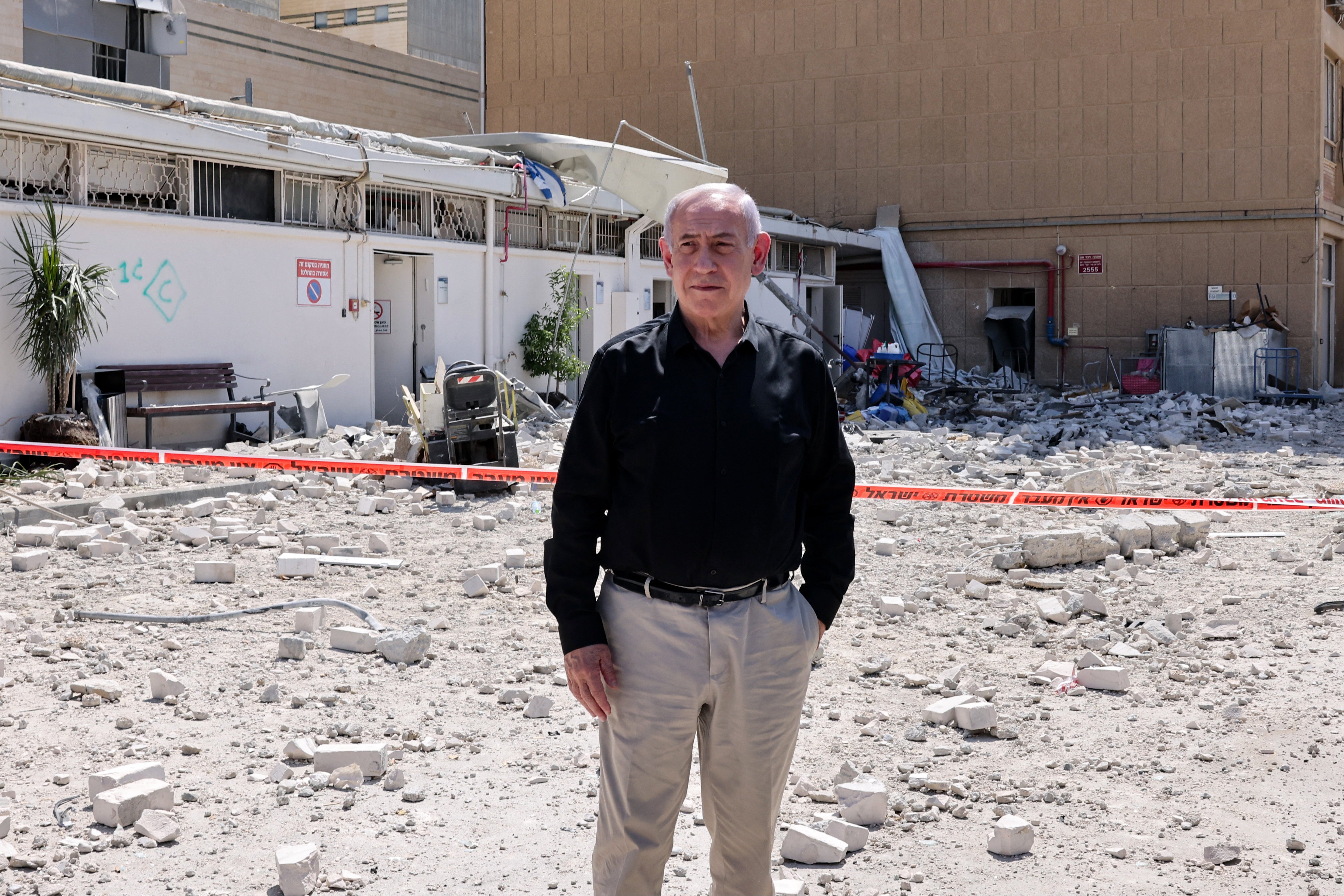Sir Keir Starmer has urged Donald Trump to step back from the brink of a direct strike on Iran, warning against any action that would “ramp up the situation”.
The prime minister said “de-escalation” was the priority and called for a diplomatic solution to be found after the US president suggested he may join Israel’s bombing campaign.
The White House said on Thursday that Mr Trump will decide on whether the US will get involved in the conflict in the next two weeks. White House press secretary Karoline Leavitt said, citing a message from the president: “Based on the fact that there’s a substantial chance of negotiations that may or may not take place with Iran in the near future, I will make my decision whether or not to go within the next two weeks.”
There were no signs of the Middle East crisis easing on Thursday, after an Iranian missile strike hit a hospital in southern Israel and multiple buildings near Tel Aviv. The war of words has also intensified, with defence minister Israel Katz branding Iran’s supreme leader Ayatollah Ali Khamenei “the modern-day Hitler” following the attacks that injured at least 240 people, according to local authorities.
Click here for the latest updates on the conflict.

Sir Keir said: “The situation in relation to Israel-Iran is obviously fast moving and in those circumstances, it’s really important to cling on to the key principles here.
“Obviously all of us, the UK included, are very concerned about the nuclear programme that Iran is developing, we’ve long been concerned about that.
“Also, [we] completely recognise Israel’s right to self-defence, but the principle is that we need to de-escalate this.
“There’s a real risk of escalation here that will impact the region, possibly beyond the region, akin to Gaza, and obviously it’s already having an impact on the economy.
“So I’ve been absolutely clear we need to de-escalate this. Yes, the nuclear issue has to be dealt with, but it’s better dealt with by way of negotiations than by way of conflict.”

Mr Trump continues to keep his cards close to his chest over whether he will allow US involvement in Israel’s campaign. On Thursday he took aim at the Wall Street Journal after it reported the president had privately approved attack plans, pending his final order, saying the newspaper had “no idea what his thoughts were” on Iran.
And on Wednesday, after Ayatollah Khamenei rejected demands for unconditional surrender, the US president said: “I may do it. I may not do it… The next week is going to be very big.”
A Washington-based Iranian human rights group said at least 639 people, including 263 civilians, have been killed in Iran and more than 1,300 wounded since Israel launched its attacks on Friday. In retaliation, Iran has fired hundreds of missiles and drones, killing at least 24 people in Israel and wounding hundreds.
The IDF said the latest missiles may include multi-warheads or cluster munitions which make it harder for the air defences to stop Iran’s barrages.
Areas near Tel Aviv felt the impact around dawn on Thursday, in a break from the pattern seen before with previous attacks coming closer to midnight. Residents in the nearby village of Jaffa were woken by a gigantic explosion. Emergency services rushed to the scene but failed to find the point of impact. An incoming rocket had been shot down, but it was close to the ground so sent shockwaves that blew out windows, causing terror.

More than 70 of the 240 victims were injured when the Soroka Medical Center in the southern city of Beersheba was hit. Soroka has over 1,000 beds and provides services to around 1 million residents of Israel’s south.
Israeli prime minister Benjamin Netanyahu condemned the attack and vowed a response, saying: “We will exact the full price from the tyrants in Tehran.”
Meanwhile, UK’s foreign secretary is travelling to Washington DC to meet his US counterpart. David Lammy and Marco Rubio are set to discuss Mr Trump’s comments about potentially joining Israel’s strikes on Iran, with the British minister expected to join calls for de-escalation. Earlier, Mr Lammy spoke with both his Israeli and Iranian counterparts as frantic diplomatic efforts to avert a wider war continue.

Israel and Iran have been exchanging fire for days after Mr Netanyahu launched airstrikes he says are aimed at preventing Tehran from developing a nuclear weapon.
The Israeli military said Tehran and other areas of Iran were being targeted during the latest round of airstrikes on Thursday, warning people in a post on X to evacuate the area around the Arak heavy water reactor, about 250km (155 miles) southwest of the capital.
The strike on the Israeli hospital has been met with clear calls for the removal of Iran’s leader.
“A dictator like Khamenei, who heads a country like Iran and has made the destruction of Israel his mission, cannot continue to exist,” Israeli defence minister Israel Katz said on Thursday.
US officials said this week that Mr Trump had vetoed an Israeli plan to kill the supreme leader of Iran. The US president later said there were no plans to kill him “at least not for now”.




